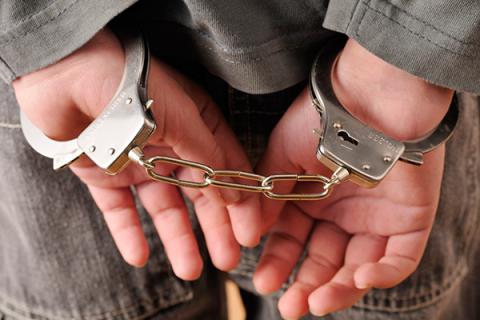Of all the constitutional rights afforded to Americans, the right to counsel is one of the most well known. In movies and TV shows, cops recite Miranda rights immediately upon arresting anyone, informing suspects of their right to an attorney even if they cannot afford one. This protection for indigent defendants was ensured by the Supreme Court case Gideon v. Wainwright in 1963; four years later, another case established due process rights for children. In that case, called In re Gault, the court ruled that "Under our Constitution, the condition of being a boy does not justify a kangaroo court."
But in juvenile courts across the country, children often face the full weight of the criminal justice system without the protection of a defense attorney. According to a report from the U.S. Attorney General's office, "Some systems ensure that every child in the system is represented, while others allow 80-90 percent of youth who are charged with offenses to appear without counsel." Children may be unrepresented for a variety of reasons, including lack of access to a public defender or pressure from judges or prosecutors to waive their constitutional right to an attorney.
Earlier this month, Colorado scored a victory for juveniles in criminal proceedings by passing House Bill 1032, a law that will ensure that all children will be represented by counsel when they appear in court. The Colorado Juvenile Defender Coalition (CJDC) found in 2012 that at least 45 percent of juveniles did not have a defense lawyer at any point throughout their case, with many more receiving counsel late in proceedings. Kim Dvorchak, CJDC's executive director, says that early advocacy is crucial for children who have been arrested. "There are many places statewide where kids are showing up in a jumpsuit and shackles and the judge is deciding whether they get to go home," she says, "and no one is there making an argument for them."
Dvorchak says there's a similar problem for children who receive summonses and have to appear in court. Those are called "first appearances," and many children face them with literally no defense attorney in the room. "You'll have a busload of kids and families in the room," she says. "There will be a prosecutor there who calls out their names, talks to them right there in open court in front of all the families, let's them know, 'I've reviewed your case and I'm offering you a plea bargain.'" Without a lawyer, she says, those families have no one to tell them the potential impact of accepting a plea – and they may feel pressure to plead guilty even if their child is innocent. "They may think, 'Oh probation, that sounds good, you're not putting my kid in jail.' But they're not understanding what probation will mean for their lives."
The punishments handed down in juvenile court can be long-lasting and devastating, despite the young age of the defendants. Colorado does not have automatic expungement for juvenile records, and Dvorchak says that a conviction can haunt a child just like it can an adult. "These cases aren't going away. The University of Colorado asks if you've ever pled guilty in juvenile court, even if the case has been dismissed," she says. "We need to strengthen due process if we're holding these cases over kids' heads for the rest of their lives."
Juvenile court isn't the only part of the criminal justice system where children are denied representation. Hundreds of thousands of children in immigration court are also denied defense lawyers – but there, unlike in criminal court, they don't even have a legal right to one. The right to indigent defense does not apply to immigration law for adults or children. That means that undocumented children entering the country may find themselves in deportation proceedings without the assistance of counsel. "I've seen kids as young as five go into court without a lawyer," says Wendy Young, president of Kids In Need of Defense (KIND), which represents unaccompanied immigrant and refugee children. And, she says, the number of children apprehended and into federal custody each year is skyrocketing – it's increased from between 6,000-8,000 children per year before 2011 to 25,000 in 2013. This year, the numbers are on track to reach 60,000 children in 2014. Unless those kids are represented by volunteer attorneys like those provided by KIND, they appear in court completely on their own.
While HB 1032 is a victory for the youth of Colorado, it shines light on the much larger problem of children entrenched in the criminal justice system, denied advocates who can help them. Dvorchak believes that more resources should be devoted to ensuring that juvenile courts provide accessible, high-quality indigent defense systems. To deny the justice system's youngest and most vulnerable clients their constitutional rights, she says, does a disservice not only to children, but to due process. When it comes to juvenile justice, she says, "We can't even begin to work on the other issues we have until we get a lawyer there at the outset."


Spread the word